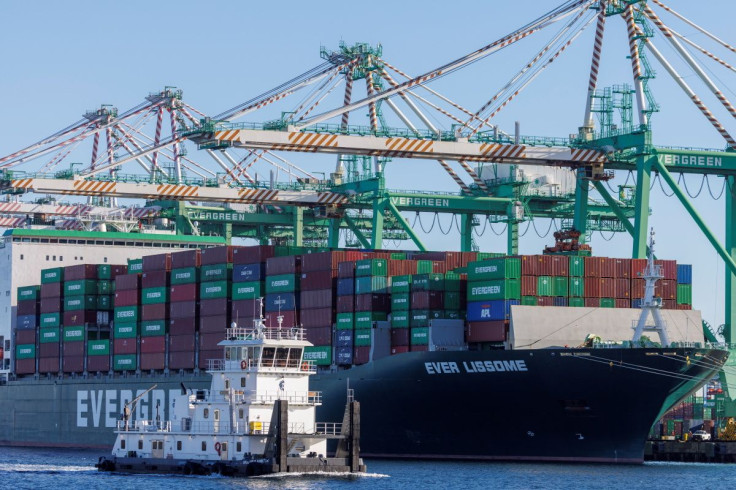Shipping Russia Banned Goods May Lead To Blacklisting, U.S. Warns Companies

The Biden administration is threatening to add companies to a trade blacklist if they skirt new export curbs against Russia, as it ramps up efforts to keep a vast array of technology out of the country after it invaded Ukraine last month.
The U.S. Department of Commerce, which oversees export controls, is mobilizing staff around the globe to halt illicit shipments of computers, aircraft parts, marine equipment and other technology to Russia, partnering with allied countries and U.S. law enforcement agencies like the FBI and the Department of Homeland Security to crack down on the newly illegal trade, according to U.S. officials.
The goal is to enforce sweeping new restrictions on shipments to Russia of both U.S. and foreign commodities, technology and software, if produced with U.S. equipment, technology or software. The restrictions also apply to Belarus.
Matthew Axelrod, the Commerce Department's Assistant Secretary for Export Enforcement, told Reuters in a statement on Monday the United States will "bring the full force of the law to hold accountable those that knowingly violate the new rules, including by placing additional parties on the Entity List," a U.S. trade blacklist.
Already some of the biggest names in tech, like Microsoft Corp and Intel Corp, have announced they will halt shipments to Russia.
U.S. exports to Russia were under $5 billion in 2020, according to the Commerce Department but, a senior official has said, multilateral cooperation means more than $50 billion in key inputs to Russia may be curbed.
Axelrod said the Commerce Department has begun "robust engagement with U.S. exporters and other partners to ensure they understand the new rules," which aim to keep chips and other items made at home and abroad from Russia.
He also noted that 91 parties in 10 countries were added to the Commerce Department's Entity List last week for supporting Russian military, security services, and defense sectors.
The mostly Russian companies added to the list are barred from buying goods without licenses, which will be denied.
The measures, coupled with tough banking sanctions and the targeting of Russian oligarchs, have not deterred Moscow, whose forces have seized Europe's biggest nuclear power plant in Ukraine and besieged and bombarded several cities as residents desperately try to flee the most devastating European conflict since World War Two.
But export controls have more of an impact over time, not in days or weeks.
As part of the highly coordinated responses to the invasion, foreign partners must either abide by U.S. restrictions on items made with American equipment, or impose similar rules.
Former Commerce Department official Bill Reinsch, noting the small universe of people who profit by creating entities to disguise and send shipments to restricted companies, said there is no way to completely cut off the illicit trade.
"If your goal is to make sure they get a third of what they need and it takes them three times as long and costs 10 times as much, that's attainable," Reinsch said.
Don Pearce, a former Commerce Department enforcement official who served as export control attache in Moscow from 2004 to 2007, said the United States could rely on allies.
"It is going to depend especially on those partner nations that have land borders with Russia, because so much of the stuff ends up going to say Helsinki and is driven over the border," he said.
Pearce also pointed to U.S. shipping companies, whose decision to avoid Russia has already put the squeeze on. United Parcel Service Inc and FedEx Corp, two of the world's largest logistics companies, have said they are halting delivery service to the country.
The Commerce Department does not have an export control officer in Russia, anymore, but export control officers are posted in other strategic locations -- including Germany, China and Turkey -- and will be on the lookout for illegally diverted goods, a current U.S. official said. They conduct pre-license checks and post-shipment verifications, ensuring the company that would get the goods is not a drop box, for instance.
The department will also keep an eye out for anomalies in trading patterns and for new parties and will check licensing and shipping documentation in an effort to catch companies illegally shipping items to Russia, another official said.
© Copyright Thomson Reuters 2024. All rights reserved.



















